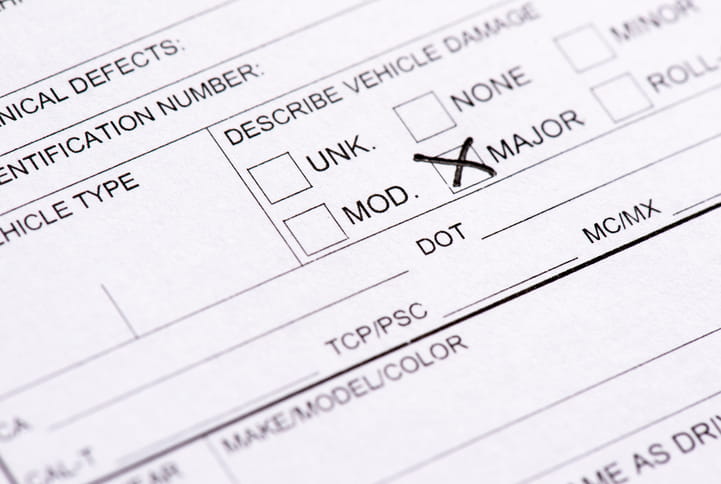How Social Media Can Influence A Personal Injury Claim
Do you have a personal injury claim? Your social media matters! What you post on social media can have a significant impact on the outcome of your case. In fact, posting the wrong thing on social media can result in you losing your personal injury claim. Our Denver personal injury attorneys explain how social media can impact your personal injury claim.
Personal Injury Lawyers » Practice Areas » Colorado Personal Injury Lawyers » How Social Media Can Influence A Personal Injury Claim
- What Are The Dangers Of Social Media Use During A Car Accident Claim?
- Can I Post My Car Accident On Facebook?
- Social Media And Claiming Personal Injury Compensation
- Can The Other Party Demand Social Media Posts In Discovery?
- Can The Other Party In A Personal Injury Claim Demand My Social Media Passwords?
- Related Personal Injury Resources
- Visit Our Personal Injury Law Offices Across Colorado & Beyond
- You Deserve Fair Compensation
What Are The Dangers Of Social Media Use During A Car Accident Claim?
During a car accident claim, the dangers of social media use are that a party or witness may post something damaging that may be admissible in court. If the person contradicts their court testimony, it can damage their credibility. A post may be a text, or it may be an image or video. The post may be admissible in order to discredit the person’s official testimony.
Can I Post My Car Accident On Facebook?
As car accident attorneys, we strongly advise against posting anything about your car accident on Facebook. Even if you think you’re careful, you may not realize that what you post may hurt your claim. For example, the other party may use evidence of your daily activities to show that your injuries do not really limit you. They may even use the fact that you’re posting at all to counter claims of certain injuries like hand, shoulder or brain injuries.
It’s best not to post about your car accident on Facebook and, instead, work with your team of professional attorneys to build your legal claim carefully and strategically.
Social Media And Claiming Personal Injury Compensation
When you think about all of the things involved in a personal injury claim, Facebook or Instagram may not be the first thing that comes to mind. However, posts on Facebook, Instagram or any other social media platform, both before and after the accident, may be of great interest to the parties and the jury. Social media isn’t new—and neither is the idea of bringing social media posts into court.
There are a few different ways that social media can influence a personal injury claim:
1. Evidence Of Activities
When you claim injuries, the last thing you want is social media posts showing otherwise. For example, if you claim it’s difficult to walk, travel and enjoy recreation, you don’t want to post a video of yourself skiing or hiking. Even if it’s true that your limitations are complex, you can expect the other party to use the evidence to argue that you’re not truthful about your injuries.
Colorado Rules of Evidence Rule 801(d)(2)¹ allows the other party to admit your out-of-court statements in court. Social media posts are included in this rule.
2. Demonstration Of Lifestyle Before And After The Accident
Social media can be a positive part of a personal injury claim for a victim by providing a trove of evidence about the victim’s lifestyle before the accident. A major component of any personal injury claim is showing that the victim’s life isn’t the same. Just like physical injuries and financial losses, lifestyle changes are things that must be proven. Social media can be helpful to show what the victim’s life was like before the accident occurred.
3. Witness Bias And Influence
Social media can show relationships between witnesses. Evidence of a social relationship can give a party grounds to argue that the witness has a bias or an improper influence from the other party. Friend lists and interactions between witnesses can open the door to arguments of bias.
4. Contradicting Other Statements And Testimony
Colorado Rules of Evidence Rule 801 allows a party to admit evidence of a witness’s prior statement. If someone posts something on social media and then testifies differently under oath, their initial statement may be admissible.
For example, if a person posts, “Glad you’re feeling better” on social media. Then, they later testify that their friend hasn’t improved at all. The social media post may become the subject of critical cross-examination.
5. The Ability To Post
Even a party’s ability to post may be relevant in a personal injury claim. For example, if a party posts a few hours after the accident, it may be hard for them to claim later that they have catastrophic injuries, even if the post says that they have catastrophic injuries. The fact that a party is simply able to post on their social media may be evidence of their physical condition.
Can The Other Party Demand Social Media Posts In Discovery?
Asking for social media information in discovery is quite settled in personal injury cases. The Nucci v. Target Corp² case is one example. In the Nucci case, the court affirmed that an opposing party may request social media posts to the extent that these posts may be relevant to the case. It is generally accepted that the other party can demand the production of social media posts as part of the discovery process.
Can The Other Party In A Personal Injury Claim Demand My Social Media Passwords?
Even though it is settled law that a party may seek discovery of social media posts, asking for unfettered access by demanding the production of passwords is another matter. Generally, the courts don’t allow a party to require passwords to dig around in a person’s social media accounts.
It’s one thing to require the party to produce the records themselves—it’s entirely another to allow the opposing party to go digging through the account themselves. The courts typically view password requests as an invasion of privacy, just like they wouldn’t let the opposing party dig around in their opponent’s home or place of business.
Related Personal Injury Resources
Visit Our Personal Injury Law Offices Across Colorado & Beyond
Serving Clients Nationwide
You Deserve Fair Compensation
Don’t let the insurance companies intimidate you into accepting less than you deserve. We’re ready to fight for you.

























